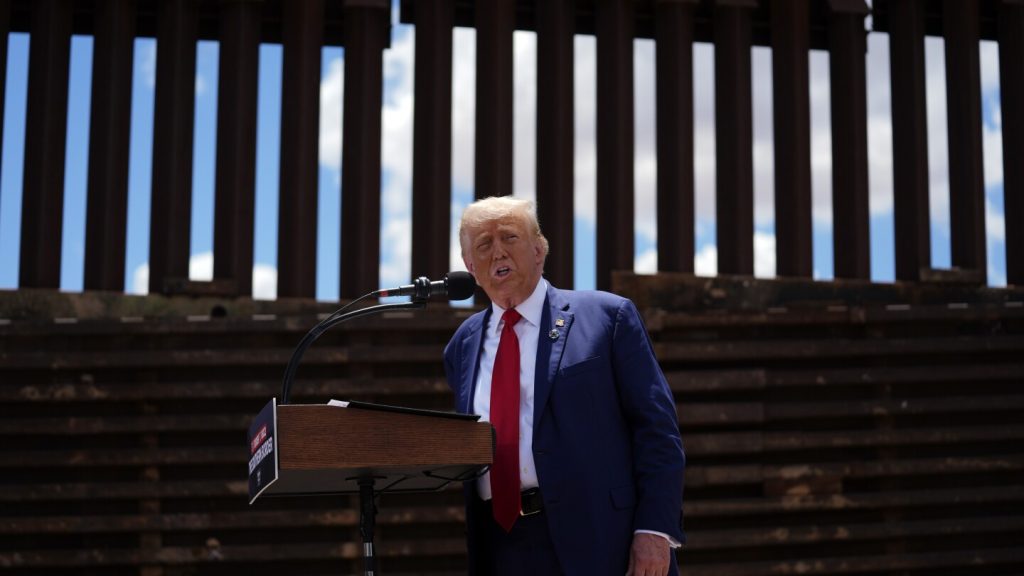As the 2024 election approaches, the contrast between the economic policies of Donald Trump and Kamala Harris has come into focus. While Trump promises to eradicate inflation with his proposed tariffs and immigration policies, most mainstream economists warn that his plans would actually exacerbate inflation. Sixteen Nobel Prize-winning economists have expressed concern that Trump’s proposals could reignite inflation, which has been decreasing and is currently close to the Federal Reserve’s 2% target. The Peterson Institute for International Economics predicted that Trump’s policies could drive consumer prices sharply higher if implemented.
In contrast, Harris’ economic agenda, which includes measures to combat price gouging and address housing issues, is not seen as particularly inflationary by economists. Some economists have estimated that Harris’ policies would have a minimal impact on inflation, even if she were to enjoy a Democratic majority in Congress. In comparison, Trump’s policies are projected to increase prices by a significant margin. The difference in the potential impact of each candidate’s economic proposals has become a focal point of discussion among economists and analysts.
One of the key components of Trump’s economic policy is the imposition of tariffs on imported goods. Trump argues that tariffs protect American jobs and have other benefits, but economists point out that tariffs are ultimately paid by American consumers. As the cost of imports increases, domestic producers may also raise their prices, leading to higher overall consumer prices. Trump’s proposed tariffs on Chinese imports and other goods could result in a significant after-tax loss for American households, putting further pressure on inflation rates.
Another aspect of Trump’s economic plan is his stance on immigration. Trump has pledged to carry out mass deportations of undocumented immigrants in the United States, which could have significant implications for the economy. Immigrants have historically played a role in increasing the supply of workers, which can help ease inflationary pressures on businesses. However, Trump’s deportation plans could remove millions of workers from the labor force, potentially leading to higher inflation rates in the future.
In addition to tariffs and immigration, Trump has also expressed a desire to influence the Federal Reserve’s interest rate decisions. The Fed plays a crucial role in controlling inflation by adjusting interest rates, and its independence from political pressure is seen as essential by economists. Trump’s statements about having a say in the Fed’s decisions have raised concerns among economists, who fear that political interference could compromise the central bank’s ability to effectively combat inflation. The Peterson Institute report found that undermining the Fed’s independence could lead to persistent increases in inflation rates.
As the election campaign intensifies, the contrasting economic policies of Trump and Harris are generating debate among economists and policymakers. While Trump’s promises to eradicate inflation through tariffs and immigration restrictions are met with skepticism, Harris’ more moderate proposals are seen as having a limited impact on inflation. The outcome of the election could have significant implications for the future direction of the economy and the trajectory of inflation in the years to come.


